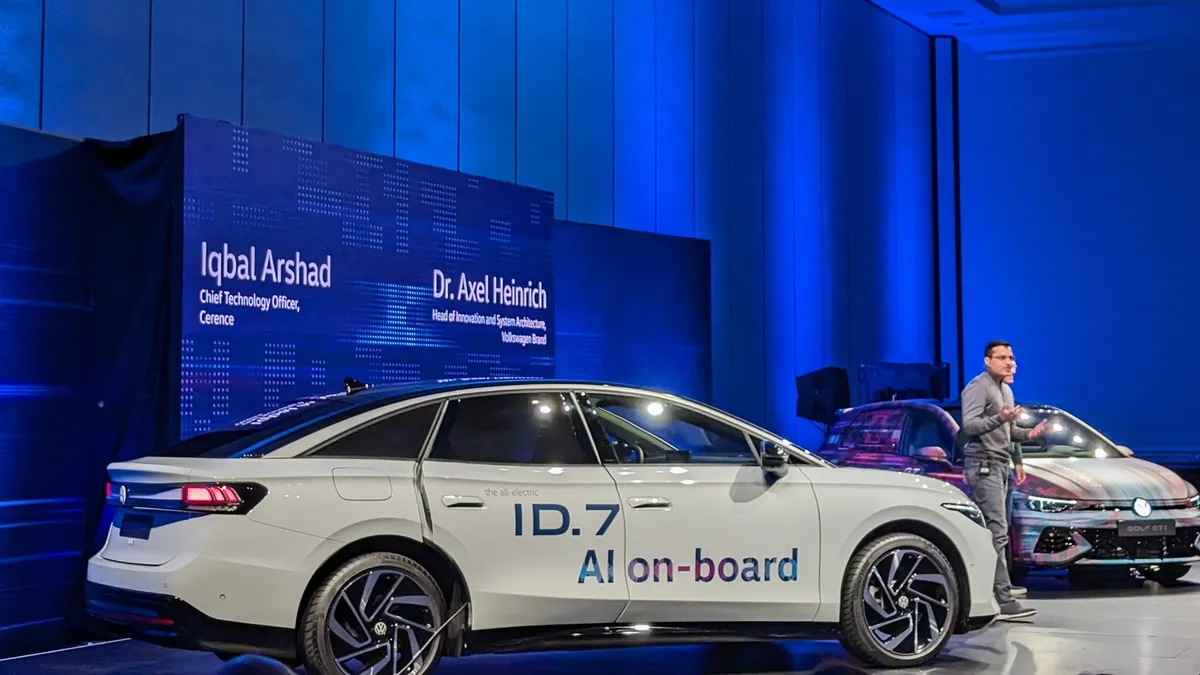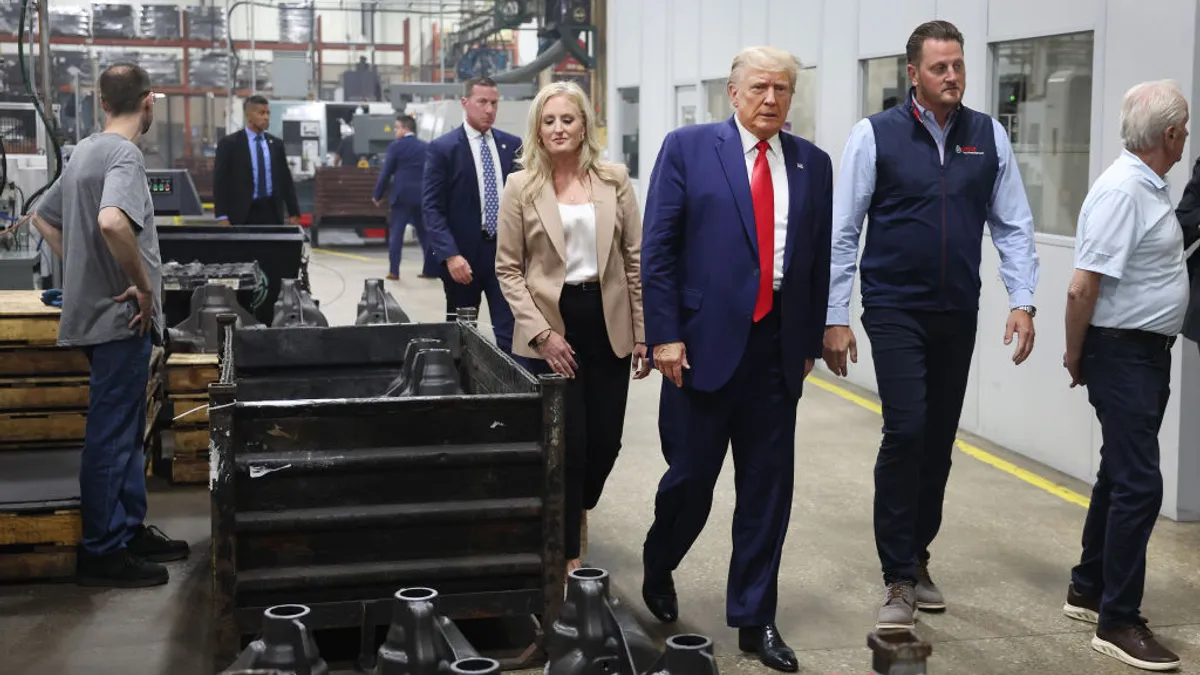Dive Brief:
- Volkswagen demonstrated its new AI-powered in-vehicle voice assistant on the new ID.7 electric sedan developed in partnership with software company Cerence at the CES technology conference in Las Vegas on Monday.
- The AI-powered voice assistant, dubbed “Cerence Chat Pro,” uses ChatGPT technology and will be integrated into many Volkswagen models as a standard feature beginning in Q2 2024.
- Chat Pro’s generative AI technology enables drivers and passengers to control vehicle functions using their voice, such as climate control and navigation, or even get answers to general topic questions.
Dive Insight:
Volkswagen announced it selected Cerence as its partner to develop its next-generation conversational AI technology for its vehicle infotainment systems in March 2022.
Cerence Chat Pro will be available for the Volkswagen ID.7, ID.4, ID.5 and ID.3 family of EVs, as well as the new Passat, Tiguan and Golf. Drivers can activate the Chat Pro assistant by pressing a steering wheel button or saying “Hello Ida.” The technology requires no account activation or the sharing of personal data, according to Volkswagen.
The automaker plans to continue to improve the chatbot technology. Planned improvements include clearing up questions, interacting in intuitive language and delivering vehicle-specific information to passengers. The Chat Pro generative AI technology can also be added to Volkswagen’s future software-defined vehicles after purchase via an over-the-air update.
Volkswagen and Cerence also have plans to collaborate on a custom-built large language model based on a constantly growing artificial intelligence database and user experience, according to the automaker. It will serve as the foundation of Volkswagen’s next-generation in-car assistant, Cerence CEO Stefan Ortmanns said.
“Thanks to the seamless integration of ChatGPT and strong collaboration with our partner, Cerence, we are offering our drivers added value and direct access to the AI-based research tool,” said Kai Grünitz, Member of the Board of Management at Volkswagen for Technical Development, in a press release.
BMW also announced in-vehicle AI-powered voice technology at CES this week called the “BMW Intelligent Personal Assistant,” which uses Amazon’s Alexa Large Language Model that is similar to Chat GPT. The technology, which the automaker first introduced in 2018, is still in development for a potential rollout across future BMW models, but offers a glimpse of what’s possible in the future for interacting with BMW vehicles using conversational AI.
BMW’s voice assistant, which also uses generative AI, provides answers about vehicle functions in a much more human conversational manner, according to the automaker. It can also control some vehicle functions. BMW said it will continue to test and improve the system’s LLM capabilities over time with its partners to ensure a high level of safety once it's made more widely available.
Adding AI-powered technology to vehicles represents a new frontier for both automakers and Tier 1 suppliers, a majority of which are not fully prepared for the transition to software defined vehicles. According to a survey released by AlixPartners last week, only 1 in 4 automakers and suppliers are fully prepared for the transition.
However, there are some technical challenges to work through. Over half of automakers surveyed preferred a proprietary software model, while Tier 1 suppliers and tech firms preferred a mix of open-source and proprietary software for vehicles. But around 2 in 3 Tier 1 suppliers plan to collaborate with tech companies to improve their software-defined vehicle capabilities for automakers.














